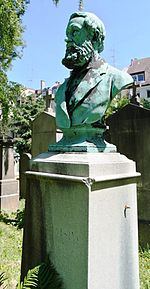About Adolf Zeising
- Adolf Zeising (24 September 1810 – 27 April 1876) was a German psychologist, whose main interests were mathematics and philosophy. Among his theories, Zeising claimed to have found the golden ratio expressed in the arrangement of branches along the stems of plants and of veins in leaves.
- He extended his research to the skeletons of animals and the branchings of their veins and nerves, to the proportions of chemical compounds and the geometry of crystals, even to the use of proportion in artistic endeavors.
- In these phenomena he saw the golden ratio operating as a universal law, the universal law in which is contained the ground-principle of all formative striving for beauty and completeness in the realms of both nature and art, and which permeates, as a paramount spiritual ideal, all structures, forms and proportions, whether cosmic or individual, organic or inorganic, acoustic or optical; which finds its fullest realization, however, in the human form. Many of his studies were followed by Gustav Fechner and Le Corbusier, who elaborated his studies of human proportion to develop the Modulor.
Read more at Wikipedia
See Also
- Famous People's Birthdays on 24 September, Germany
- Famous People's Birthdays in September, Germany
- Famous writer's Birthdays on 24 September, Germany
- Famous writer's Birthdays in September, Germany
- Famous psychologist's Birthdays on 24 September, Germany
- Famous psychologist's Birthdays in September, Germany
- Famous philosopher's Birthdays on 24 September, Germany
- Famous philosopher's Birthdays in September, Germany


 Date of Birth:
Date of Birth:  Place of Birth: Ballenstedt, Saxony-Anhalt, Germany
Place of Birth: Ballenstedt, Saxony-Anhalt, Germany